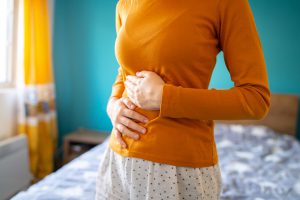 March is National Endometriosis Awareness Month. Endometriosis is a condition that affects the lining of the uterus (also known as the endometrium); it currently affects an estimated 176 million women around the globe. Some of the symptoms of endometriosis include:
March is National Endometriosis Awareness Month. Endometriosis is a condition that affects the lining of the uterus (also known as the endometrium); it currently affects an estimated 176 million women around the globe. Some of the symptoms of endometriosis include:
- Painful sexual intercourse
- Pain during pelvic examinations
- Severe pain during menstruation
- Pain during urination or a bowel movement
- Excessive bleeding
- Infertility
Symptoms of endometriosis tend to appear during reproductive years, between the ages of 12 and 60. The highest number of cases are diagnosed between the ages of 25 to 35; however, some women with endometriosis remain undiagnosed because they do not have symptoms. Additionally, this disorder can sometimes be mistaken for other conditions.
Endometriosis causes the inner lining of the uterus to grow outside of the uterus. This most commonly affects the ovaries, fallopian tubes, ligaments that support the uterus, and the areas between the rectum and the vagina. Rarely, endometriosis can also occur in the lungs, thighs, arms, and other parts of the body that are more distant from reproductive organs.
When endometrial tissue spreads, it develops into growths called implants. These clumps of tissue are affected by the menstrual cycle as though they were inside of the uterus, regardless of their actual location. Each month, they build up, break down, and shed. However, endometrial tissue cannot be discharged from the body if it is not inside the uterus; as a result, these implants cause inflammation, swelling, internal bleeding, and the formation of scar tissue.
Doctors do not yet know what causes endometriosis, but certain risk factors have been identified that may make you more likely to develop it. These include:
- An immediate family member with endometriosis
- An abnormal uterus
- Menstruation that begins before the age of 11
- Shorter menstrual periods, lasting less than 27 days on average
- Heavy menstruation that lasts for more than one week
If you experience symptoms of endometriosis, your doctor can perform a variety of tests, such as pelvic examinations, laparoscopy, and imaging tests such as magnetic resonance imaging (MRI) to accurately diagnose it. While there is no cure for endometriosis, your doctor can work with you to develop an effective treatment that may incorporate options such as medication, surgery, or alternative therapies.
You can schedule an appointment with an OB/GYN at Jamaica Hospital Medical Center’s Women’s Health Center to receive high-quality treatment for endometriosis. To learn more, please call (718) 291-3276.
All content of this newsletter is intended for general information purposes only and is not intended or implied to be a substitute for professional medical advice, diagnosis or treatment. Please consult a medical professional before adopting any of the suggestions on this page. You must never disregard professional medical advice or delay seeking medical treatment based upon any content of this newsletter. PROMPTLY CONSULT YOUR PHYSICIAN OR CALL 911 IF YOU BELIEVE YOU HAVE A MEDICAL EMERGENCY.
